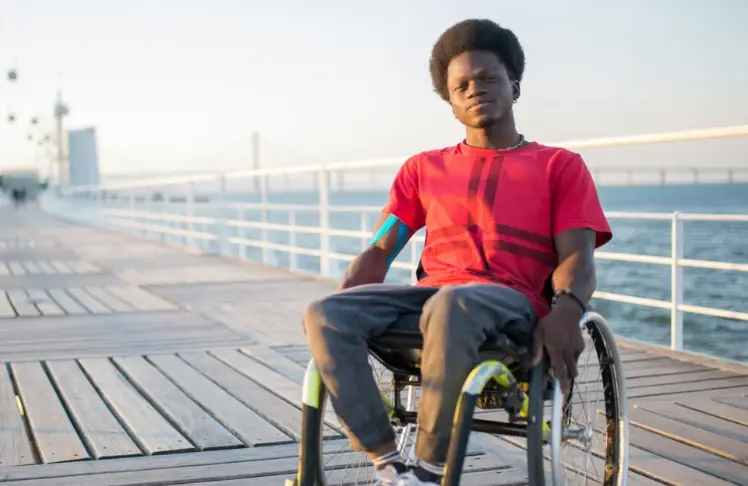
It used to be that Tariq prided himself on providing for his family, earning enough money to pay for food, the rent, and more. “I used to tell my wife, ‘Hey babe, you don’t like your job? You don’t have to work. You can go back to school, stay at home, and do whatever you want. I’ll take care of everything, and I was in a position to do that,” he says. But that was before he was shot.
Now, as he told researchers from Rutgers University School of Public Health, who authored a new study on Black men who survive gun violence, he has gone from being a provider to being dependent — and that’s taken a huge toll on the 38-year-old.
“I just stay at one spot, don’t move around too much this way. I don’t work up an appetite,” he said. “I feel like a burden. You know now I can’t be burden lifter so my phone don’t ring and it f- sucks.”
The study was published this month in the American Journal of Men’s Health. Among their findings, the researchers discovered that, much like Tariq, survivors struggle with a loss of independence. Participants described how that can balloon into other issues, too, causing them to feel like a burden on their caretakers and to struggle with how the circumstances of their injuries undermined their sense of manhood.
“In describing some optimal characteristics of what it means to be a man, disabled violently injured Black men discussed the importance of being a protector, provider, responsible, independent and having self-awareness,” Nazsa Baker, lead author of the study and a postdoctoral fellow at Rutgers New Jersey Gun Violence Research Center, said in a statement. “Most of the men described hegemonic ideals of manhood and how their definitions of manhood would impact others.”
Gun-Related Injuries Among Black Males
Gun violence is a leading cause of death among Black males. In 2021, Black boys and men ages 15 to 24 died from more gun homicides than unintentional injuries, suicide, heart disease, and COVID-19 put together, according to the Centers for Disease Control and Prevention.
But not all shooting injuries result in death.
More than 110 Black Americans are injured daily. And about half of young Black men who survive shootings are hospitalized for similar injuries within five years, making gunshot wounds the leading cause of disability among this population.
How Firearm Injuries Impact Black Men
Survivors of firearm-related assaults face unique challenges.
Physically, it can be difficult to complete daily activities, such as bathing, getting dressed, and working. Mentally, post-traumatic stress disorder, depression, and substance use disorder may develop in the wake of a shooting injury. Victims may avoid mental health services due to stigma, fear, and a lack of trusted resources.
The Rutgers researchers interviewed 10 Black men about their psychological and physical experiences as they recovered from gunshot wounds.
“I have to get out my chair and get into something else, then roll to the bathroom. There are areas that I can’t fit in the house.”
Racial stereotypes have defined Black men as hyper-aggressive, hypersexual, and muscular. “However, in this study, participants consistently defined manhood as being able to take care of one’s responsibilities—especially their financial responsibilities,” the authors wrote.
The participants define a man as a “protector, provider, nurturer,” and someone who is supposed to “build a foundation, an empire, and a business,” and “takes care of responsibility by any means necessary.” All of which becomes more difficult to do after being shot, especially for those who lose mobility as a result of their injuries.
The researchers found that expressing manhood is an essential aspect of Black men’s lives and identities.
“I was shot 16 times. I get upset about little things. I’ll be mad my foot will go out on me, and my back getting stiff,” Reginald, 34, said. “My body is just mad different now, it’s not the same.”.
Barry, 22, said he hasn’t adjusted to his wheelchair.
“It affects me because right now, the chair is too big to go into the bathroom, so I gotta do other things to get to the bathroom,” he said. “I have to get out my chair and get into something else, then roll to the bathroom. There are areas that I can’t fit in the house.”
Ultimately, the researchers found that expressing manhood is an essential aspect of Black men’s lives and identities.
“Because their injuries had impacted their bodies, they felt hampered in their ability to be men. This appeared to create mental and emotional distress for the men in this study, suggesting that in a sense, manhood serves as a social determinant of health of Black men.”















